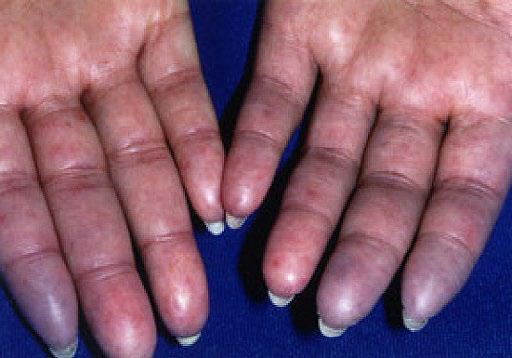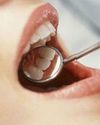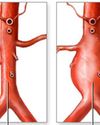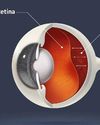Scleroderma

Scleroderma, also known as systemic sclerosis, is an autoimmune disorder where the immune system mistakenly attacks healthy tissues. The disease leads to the overproduction of collagen, causing thickened and hardened areas of the skin and, in some cases, internal organ damage. Scleroderma is more common in women than men and typically develops between the ages of 30 and 50.
Types of Scleroderma
Scleroderma can be classified into two main types: Localized Scleroderma Affects only the skin and underlying tissues.
Includes morphea (patchy skin changes) and linear scleroderma (streak-like lesions).
Systemic Scleroderma Affects the skin, blood vessels, and internal organs.
● Subdivided into:
● Limited Cutaneous Systemic Sclerosis: Skin changes are restricted to the hands, face, and lower arms or legs.
● Diffuse Cutaneous Systemic Sclerosis: Widespread skin involvement and a higher risk of internal organ damage.
● Symptoms
The symptoms of scleroderma vary widely depending on the type and severity of the disease. Common symptoms include:
● Skin Changes: Thickening, hardening, or tightening of the skin, often accompanied by shiny or discoloured patches.
This story is from the {{IssueName}} edition of {{MagazineName}}.
Start your 7-day Magzter GOLD free trial to access thousands of curated premium stories, and 9,500+ magazines and newspapers.
Already a subscriber ? Sign In
This story is from the {{IssueName}} edition of {{MagazineName}}.
Start your 7-day Magzter GOLD free trial to access thousands of curated premium stories, and 9,500+ magazines and newspapers.
Already a subscriber? Sign In

5 Mental Shifts That Can Change Your Life in 90 Days
Reprogram Your Subconscious

How genes influence Diet and Health?
Nutrigenetics is the branch of genetics that studies the effect of genetic variants on dietary response. This knowledge allows us to personalize the diet of each individual, adapting eating habits to each of the nutritional needs.

10 Common Dental Problems and How to Prevent Them
Maintaining good oral hygiene is essential not just for a bright smile, but also for your overall health. Many dental problems can lead to discomfort, infections, and even systemic health issues if left untreated.

AI Chatbot Therapy is here
AI chatbots are becoming hugely popular in health because chatbots are available 24/7 to provide support. Users often find it easier to be honest with a chatbot, since there is no fear of judgment.

Virtual Reality Therapy Revolutionizing Mental Health Care
Enter Virtual Reality (VR) Therapy, a groundbreaking innovation transforming the way we heal emotional wounds with a unique and effective approach.

Bulging Aorta: What You Need to Know About Aortic Aneurysms
An aortic aneurysm, often referred to as a “bulging aorta,” is a potentially life-threatening condition that occurs when a section of the aorta — the largest artery in the body — becomes weakened and balloons outward. While it may develop silently without noticeable symptoms, the consequences of a ruptured aneurysm can be catastrophic.

India's Hidden Health Pandemic
Vitamin D Deficiency Affects One in Five

Buransh The miracle flower
Uttarakhand, formerly known as Uttaranchal is a state in northern India crossed by the Himalayas and is a major pilgrimage center.

Beyond H₂O: Unveiling the Truth About Water Fasting's Impact on Your Health
Water fasting has become a popular practice, but it's important to tread carefully. Here's a breakdown to help you decide if it's right for you:

Retinal Detachment A Silent Threat to Vision
Retinal detachment is a serious eye condition that demands immediate medical attention. Often painless and subtle in its early stages, it can lead to permanent vision loss if not treated promptly.
